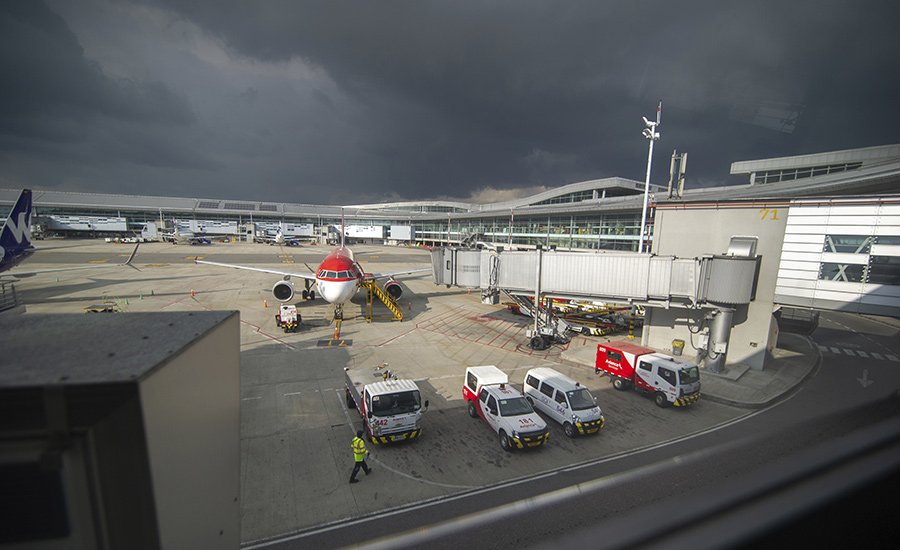Anticipating continued growth in passenger and air cargo traffic, Colombia has announced plans to invest more than $2.7 billon to modernize and expand five airports across the South American country.
The program, equivalent to 12.26 billion Colombian pesos, is to be carried out using multiple public-partnerships to “improve competitiveness and attract new investment to the country,” according to the country’s National Infrastructure Agency (ANI), which oversees development collaborations with the private sector.
The first project, a $105-million expansion of Rafael Núñez International Airport in Cartagena, on Colombia’s northeast coast, is expected to be awarded later this year. ANI says three groups are vying for the 8.5-year concession that will include design and construction of a new 187,000-sq-ft international terminal, remodeling of the existing 270,000-sq-ft terminal, airside improvements and maintenance.
The expanded facility will operate in parallel with a new $68.3-million international airport envisioned to be built in the nearby Bayunca region. Currently in the preliminary planning stage, the 1,600-acre airport will accommodate 17 million passengers with a 1-million-sq-ft terminal and a 9,800-ft runway at full build-out, plus accommodations for a second runway.
Additional airport project concessions expected to be awarded in the second half of 2024 include Gustavo Rojas Pinilla International Airport in the San Andres archipelago, Alfonso Bonilla Aragón International Airport in the southwestern Colombian city of Cali and airside improvements at Bogata’s El Dorado International Airport.
Already South America’s second-largest air hub, El Dorado will nearly double its capacity under the sixth and largest P3, currently estimated at $160 million. Called “El Dorado Max,” the program will nearly double Bogata’s annual capacity to 60 million passengers through terminal expansions and additions, while also increasing cargo capacity by 25%. ANI currently plans to award the El Dorado Max P3 by the end of 2025.
With both passenger and air cargo traffic to Latin America continuing to rebound after the pandemic, the U.S. and Colombia recently approved “seventh-freedom traffic rights,” providing air carriers with greater flexibility in transporting goods between the two countries. For example, U.S. air carriers are now allowed to fly all-cargo services between Colombia and a third nation without needing to perform a commercial stop in the United States.
Canada also recently expanded its air transport agreement with Colombia, allowing designated airlines of the two countries to operate an unlimited number of passenger and cargo flights to an unlimited number of destinations.
By collaborating with the private sector to expand capacity at key aviation facilities, ANI president Jonathan Bernal González said in a statement, “we are committed to improving operating conditions at airports to respond to the constant growth in passenger traffic, maintaining the level of service and the highest quality standards.”
Public private partnerships are expected to play a prominent role in Colombia’s infrastructure development plans over the next two years. The country has an already announced plans to spend $3.27 billion this year on several major rail, road and port projects.



Post a comment to this article
Report Abusive Comment